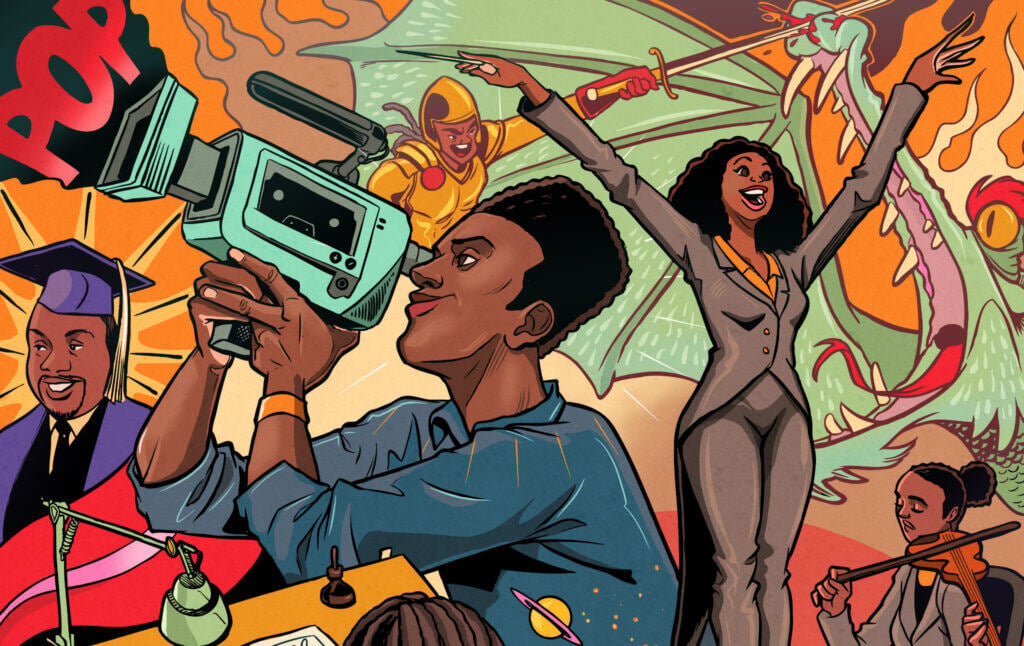Ahlian Jian Insights
Exploring the latest trends and news in various fields.
Pop Culture Euphoria: Why We Can't Get Enough of Nostalgia
Dive into the nostalgia craze! Discover why pop culture gems keep us hooked and how they shape our lives today.
The Science of Nostalgia: Why We Crave the Past
Nostalgia is a complex emotion that intertwines memory with feelings of longing for the past. According to psychological research, nostalgia serves several functions in our lives. It can enhance our mood, foster a sense of continuity, and even strengthen social bonds. The science of nostalgia reveals that when we reflect on cherished memories—like childhood adventures or significant milestones—we often experience feelings of warmth and happiness. This longing acts as a coping mechanism, helping us navigate through the challenges of the present by reminding us of better times.
The craving for the past is deeply rooted in human psychology. Neuroscientific studies suggest that nostalgia activates brain regions associated with reward and emotion, similar to other pleasurable experiences. This activation can lead to increased feelings of connectedness and optimism about the future. Additionally, memories of the past often become idealized, allowing us to escape the complexities of modern life. Ultimately, understanding why we crave the past allows us to appreciate the role nostalgia plays in shaping our identities and enhancing our overall well-being.

Nostalgia in Pop Culture: Trends That Define Generations
Nostalgia plays a pivotal role in shaping pop culture, often serving as a bridge connecting generations through shared experiences and memories. From the resurgence of vinyl records to the revival of 90s television shows, societal trends are frequently revisited as audiences long for the simplicity and charm of the past. These trends not only tap into individual memories but also create a sense of community among those who lived through these eras. For instance, the popularity of reboots like Fuller House and The X-Files highlights how nostalgic content resonates with both original fans and new viewers alike, sparking conversations across different age groups.
Additionally, nostalgia in pop culture isn't merely about reliving the past; it's also a powerful marketing tool. Brands and creators understand the emotional connection that consumers have with bygone eras, leading to an increase in retro-themed products and marketing campaigns. For instance, the recent resurgence of fashion trends from the 80s and 90s has been incredibly influential, often characterized by
- bright colors
- oversized silhouettes
- vintage branding
Is Nostalgia a Double-Edged Sword? The Benefits and Drawbacks of Living in the Past
Nostalgia, often considered a sentimental longing for the past, can serve as a powerful emotional anchor for individuals. Its benefits include fostering a sense of connection and belonging, helping people to reminisce about positive experiences and cherished memories. This feeling can enhance mood, promote psychological well-being, and even inspire creativity. Many have experienced moments where recalling a childhood memory ignites feelings of joy and warmth, making nostalgia a source of comfort during difficult times. However, while nostalgia can create happiness, it can also lead to a longing for a time that may never return, creating tension between past aspirations and present realities.
On the flip side, living in the past can have its drawbacks. Constantly reflecting on earlier times may hinder personal growth and prevent individuals from embracing new opportunities. The phenomenon of nostalgia may also create feelings of regret or inadequacy when individuals compare their current lives unfavorably to their remembered experiences. People may find themselves stuck in a mental loop, reminiscing about the 'good old days' while missing out on the present. This duality makes nostalgia a truly double-edged sword, where its ability to bring joy is tempered by the risk of promoting stagnation and dissatisfaction with the current moment.